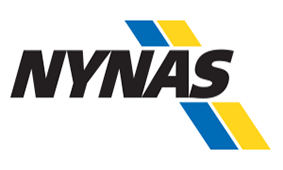
Nynas says gets US approval on sanctions removal

Nynas is a 50:50 joint venture between Finland's Neste Oil and Venezuela's state-owned PdV, therefore US sanctions on Caracas and on PdV has forced Nynas to purchase crude from outside Venezuela. This has created considerable difficulties for the firm, reduced its bitumen output and increased its purchase prices, partly by making transactions in US dollars difficult.
Nynas today applied to the district court in Sodertorn, Sweden, for a three month extension to allow time to complete more of the reorganisation, including changes to the ownership structure and agreeing new financing. The application has the support of the company's administrators, andthe court is likely to rule on the extension next week.
Nynas said the Treasury's Office of Foreign Asset Control (OFAC) has said the proposal is satisfactory, and that once the change in ownership has been executed it will remove sanctions applying to Nynas and make a public statement.
The sanctions have had a crippling effect on Nynas' finances. The company made a much steeper loss in January and February this year stemming from costs related to the sanctions and reorganisation, oil price losses and foreign exchange losses.
Nynas has funds to cover operating costs during the reorganisation, but lacks funds to make all necessary purchases of crude to maintain production, so negotiations are continuing with some larger customers for 500-600mn Swedish kronor ($51-61mn) financing of deliveries, and Nynas is seeking further financing from lenders.
Nynas operates four refineries: Harburg in Germany, Nynashamn and Gothenburg in Sweden and Eastham in the UK, the latter in a joint venture with Shell. Nynas produces bitumen, base oils and other speciality lubricants, and naphthenic oils.
By Jonathan Weston


Gold price eases after Trump downplays clash with Fed chair Powell

Copper price hits new record as tariff deadline looms

Brazil producers look to halt pig iron output as US tariff threat crimps demand

Three workers rescued after 60 hours trapped in Canada mine

Gold price could hit $4,000 by year-end, says Fidelity

US targets mine waste to boost local critical minerals supply

Energy Fuels surges to 3-year high as it begins heavy rare earth production

Glencore workers brace for layoffs on looming Mount Isa shutdown

Chile’s 2025 vote puts mining sector’s future on the line

Kinross divests entire 12% stake in Yukon-focused White Gold

Gold price could hit $4,000 by year-end, says Fidelity

Southern Copper expects turmoil from US-China trade war to hit copper

Ramaco Resources secures five year permit for Brook rare earth mine in Wyoming

Column: EU’s pledge for $250 billion of US energy imports is delusional

Finland reclaims mining crown as Canada loses ground

Gold price down 1% on strong US economic data

Trump’s deep-sea mining push defies treaties, stirs alarm

Chile’s 2025 vote puts mining sector’s future on the line

Gold price retreats to near 3-week low on US-EU trade deal

Gold price could hit $4,000 by year-end, says Fidelity

Southern Copper expects turmoil from US-China trade war to hit copper

Ramaco Resources secures five year permit for Brook rare earth mine in Wyoming

Column: EU’s pledge for $250 billion of US energy imports is delusional

Gold price down 1% on strong US economic data

Trump’s deep-sea mining push defies treaties, stirs alarm

Chile’s 2025 vote puts mining sector’s future on the line

Gold price retreats to near 3-week low on US-EU trade deal

China’s lithium markets gripped by possible supply disruptions














